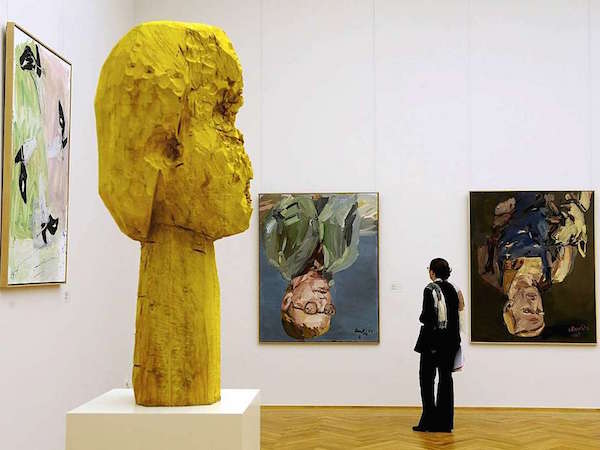Art World
Georg Baselitz Withdraws All Loaned Artworks from German Museums
The cultural protection scandal continues.

The cultural protection scandal continues.

Henri Neuendorf

The planned tightening of Germany’s cultural protection legislation has already provoked outrage and widespread criticism from art professionals across the country.
The proposed changes stipulate that all artworks older than 50 years and valued over €150,000 require an export permit to be sold abroad, even within the European Union, in order to prevent the loss of “national treasures.”
Only last week German Culture Minister Monika Grütters explicitly dismissed fears that the government’s proposed changes would discourage private individuals from loaning important artworks to German museums. It didn’t take long before she’s been proven wrong.

Culture Minister Monika Grütters has encountered fierce resistance from Germany’s art professionals.
Photo: Courtesy of Charles Yunck via BZ-Berlin.
The Süddeutsche Zeitung reports that one of Germany’s most important artists, Georg Baselitz, who has come under fire for sexist remarks, announced on Sunday that he will withdraw all of his works that are on long-term or permanent loan from German museums.
The move means that Munich’s Pinakothek der Moderne, Dresden’s Albertinum, and the Kunstsammlungen Chemnitz will all lose important artworks.
Dresden will need to return the first upside-down paintings by the artist from the late 1960s, among others. Meanwhile, Munich has to give back several important works from the artist’s Heroes series.
“We are dismayed by the withdrawal of numerous works that we were able to show on loan from Georg Baselitz,” Hartwig Fischer, director of the Staatliche Kunstsammlungen Dresden told the Tagesspiegel.

Dresden’s Albertinum Museum must return seminal works loaned by Georg Baselitz to the artist.
Photo: Courtesy of DDP via Tagesspiegel.
“This is a very great loss, especially for the presence of contemporary art in Dresden and for the presence of this artist in the Staatliche Kunstsammlungen, which he has generously supported over the years.”
Baselitz’s decision signals the culmination of what critics of the government’s decision have been pointing out for weeks. The changes in the legal framework will not only damage the art trade in Germany, it will also irreparably alter the country’s cultural landscape.
Rather than leave the classification of what is or isn’t considered a “national treasure” in the hands of an anonymous civil servant, Baselitz has taken the decision to secure his work before the changes come into force. And it’s highly likely that collectors, which include Franoçis Pinault, will do the same.